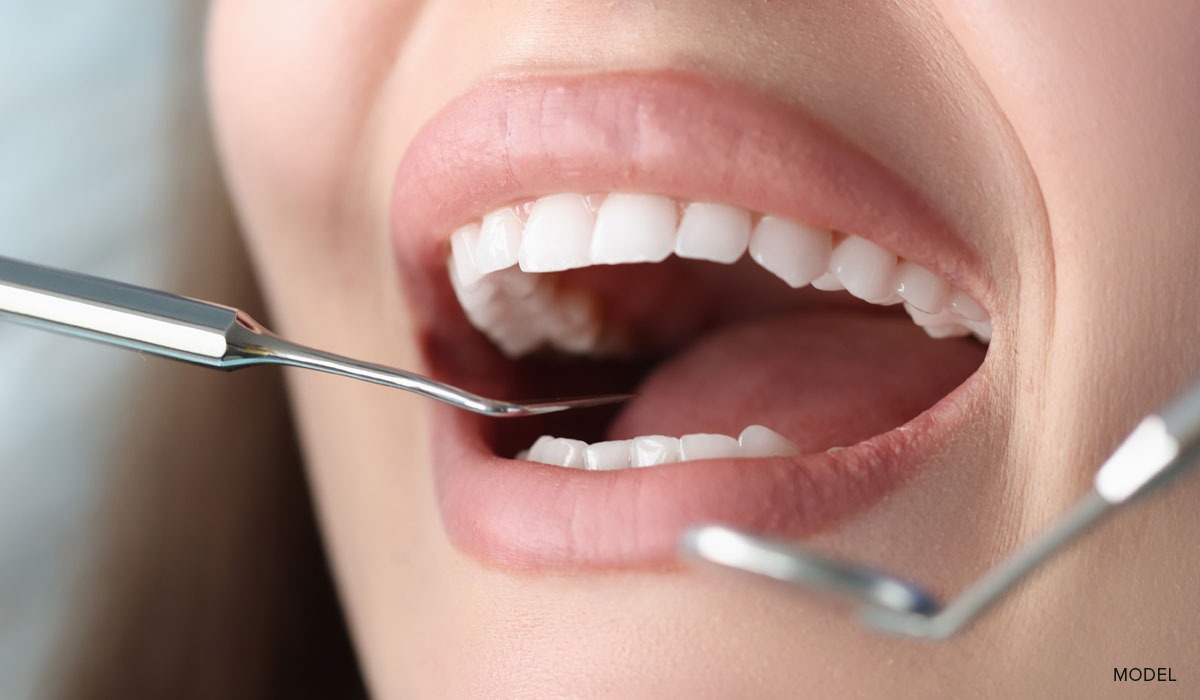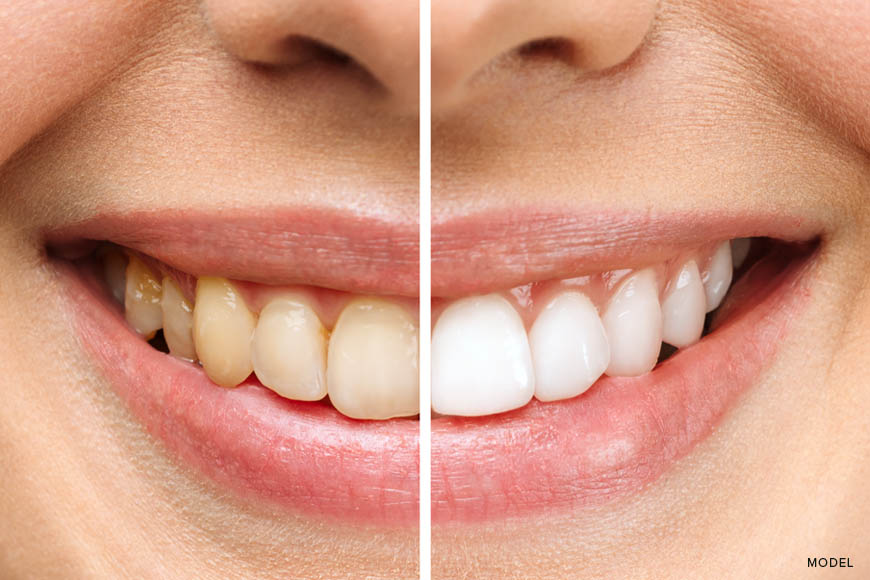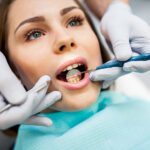A bright, white smile is often desired as it is the first thing people notice and can leave a lasting impression. However, not everyone has naturally white teeth, and even those who do can develop stains over time. Discolored teeth can be embarrassing and impact self-confidence. Teeth stains can have various causes, such as food and drink, smoking, and poor oral hygiene. Fortunately, there are different types of teeth stains that can be treated differently. This article will explore the types of teeth stains and their corresponding treatments.
Different Types of Teeth Stains
People of all ages struggle with teeth staining, which is a frequent dental issue. Understanding the many kinds of teeth stains and how they are brought on by various things is essential to choosing the right course of action for each situation:
-
Extrinsic Stains
Extrinsic teeth stains are the most common type of tooth discoloration, and they occur on the outer layer of the tooth (enamel). Extrinsic stains are caused by food and drink, such as coffee, tea, red wine, and berries. They can also be caused by smoking and poor oral hygiene.
-
Intrinsic Stains
Intrinsic stains occur on the inner layer of the tooth (dentin) and are caused by factors that affect the tooth from the inside. Intrinsic stains can be caused by aging, trauma, or certain medications, such as tetracycline or fluoride. These stains are usually more difficult to remove than extrinsic stains, and may require more intensive treatments, such as dental bonding, veneers, or crowns.
-
Age-Related Stains
Age-related stains, as the name suggests, are caused by aging. As we age, our teeth naturally become darker and yellowed. This is because the enamel on our teeth becomes thinner over time, exposing more of the underlying dentin.
-
Combination Stains
Combination stains are a mix of extrinsic and intrinsic stains, and are often the most difficult to treat. Combination stains can be caused by a variety of factors, such as smoking, poor oral hygiene, aging, and certain medications. The treatment for combination stains will depend on the cause and severity of the staining, and may involve a combination of teeth whitening, dental bonding, veneers, or crowns.
-
Fluorosis Stains
Fluorosis stains are caused by overexposure to fluoride during the development of teeth. Fluorosis stains are usually mild and can be treated with professional teeth whitening or at-home whitening kits.
-
Tetracycline Stains
Tetracycline stains are caused by the antibiotic tetracycline and its derivatives, which can cause discoloration of the teeth when taken during tooth development. Tetracycline stains are usually difficult to treat and may require more intensive treatments, such as dental bonding, veneers, or crowns.
Possible Solutions to Teeth Discoloration

Teeth discoloration can be a frustrating dental issue. Fortunately, there are several possible solutions available to help restore the natural color of your teeth, depending on the type and severity of the stain.
- Brush and floss daily to maintain good dental hygiene and prevent stains from developing on the surface of the tooth or to keep your teeth whitened if you have already had them professionally treated.
- Limit your consumption of foods and drinks that can stain teeth, such as coffee, tea, tobacco and red wine.
- Schedule regular dental cleanings to remove surface stains and prevent more serious dental issues.
- Consider professional teeth whitening or other dental procedures to address deep or age-related stains.
- Scaling and Root Planing: A popular treatment option for teeth stains, professional teeth whitening can help eliminate surface stains caused by food, drink, and smoking. This procedure involves the application of a special bleaching agent that is more effective than over-the-counter products.
- Dental Bonding: This procedure uses a tooth-colored resin to cover and repair damaged, discolored, or misshapen teeth. It can also help address minor gaps and chips in teeth.
- Veneers: Veneers are thin, custom-made shells that are placed over the teeth to improve their appearance. They can help address severe teeth discoloration, misalignment, and damage.
- Crowns: Dental crowns are tooth-shaped caps that are placed over damaged or discolored teeth to restore their shape, strength, and color. They are often used to treat severe tooth decay or damage.
Teeth stains can be embarrassing, but there are ways to fix them. Always talk to your dentist about the best course of action for you.
At Madison Dentistry, we understand the importance of a bright, healthy smile. If you’re dealing with teeth stains, our team is here to help. We offer a range of treatments to address different types of stains, from professional teeth whitening to porcelain veneers. Book a consultation today to learn more about your options and take the first step towards a brighter, more confident smile.
You may call us at 973-822-8003 to schedule your appointment.




